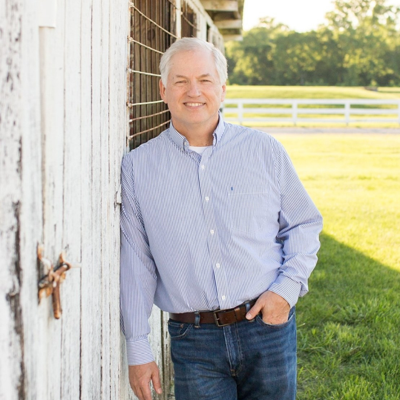
The songs we sing in the darkest nights will be the songs that show the world the unwavering faithfulness of our Father who loves us so much.
By Mike Harland
Tragedy strikes all of us at different times in our lives. For the believer, those hardships inform our faith through the experience of God’s grace at work in our lives. Difficulty is the place we learn the greatest lessons about God’s faithfulness to us.
Paul and Silas found themselves wrongfully imprisoned in the jail in Philippi (Acts 16). The song they sing at midnight changes everything and demonstrates the power of the gospel to impact lives even in the worst of circumstances.
Consider these well-loved hymns—midnight songs, if you will—and the truth we find in the stories of how they were written.
“Wherever He Leads, I’ll Go”
It was 1936 and two friends serving together at a Sunday school conference in Alabama were at lunch, sharing what God was doing in their lives.
One, a missionary to Brazil home on furlough, told the other, a hymn writer leading the music for the conference, that a health issue would keep him from returning to the country he had grown to love. The news, received just days before, had broken his heart.
The hymn writer asked, “What will you do?” And through tears, the missionary, R.S. Jones, told the hymn writer, B.B. McKinney, “Wherever He leads, I’ll go.”
McKinney was so moved that he penned the classic hymn that afternoon and sang it that night after Jones had preached, recounts Terry C. Terry, a musicologist who wrote his doctoral dissertation about McKinney. Since then, this song has been sung at invitation times and crusades, revivals and worship services.
We may not always know where He will lead, but we do know we can choose to follow.
The next time we stand at a crossroads of indecision and are asked what we will do, may we have the grace to reply like R.S. Jones and B.B. McKinney, “Wherever He leads, I’ll go.”
“What a Friend We Have in Jesus”
In 1844 a young Irishman, Joseph Scriven, had completed his college education and returned home to marry his sweetheart. As he was traveling to meet her on the day before the planned wedding, he came upon a horrible scene—his beautiful fiancée tragically lying under the water in a creek bed after falling off her horse.
Later, Scriven moved to Canada and eventually fell in love again, only to experience devastation once more when she became ill and died just weeks before their marriage. For the second time, this humble Christian felt the loss of the woman he loved.
The following year, he wrote a poem to his mother in Ireland that described the deep friendship with Jesus he had cultivated in prayer through the hardships of his life.
The poem was published anonymously at first under the title, “Pray Without Ceasing.” Ten years later, he finally acknowledged this well-loved text had been written by him and his friend, Jesus. In 1868, attorney Charles Converse set the text to a tune and renamed it “What a Friend We Have in Jesus.” Ken Osbeck tells the story in his book 101 Hymn Stories.
Instead of thinking God was punishing him, Scriven cherished God’s friendship through all of this hardship—a friendship he discovered in prayer.
May we learn that our relationship with God will grow the same way—in prayer.
“It Is Well With My Soul”
Attorney Horatio Spafford and his wife, Anna, had a wonderful family of four daughters. Tragically, the great Chicago fire destroyed most of his business in 1871. Then, two years later, his wife and daughters were aboard the ocean liner Ville du Havre when it was struck by another vessel. All four daughters drowned.
His wife survived and nine days later was able to contact her husband by telegraph with this question: “Saved alone—what shall I do?”
Spafford took the next available ship to join his wife. During the passage, the captain of the ship notified Spafford they were crossing the place where the Ville du Havre had sunk. After those moments of reflection and over the course of the rest of the journey, Spafford penned the words of this beloved hymn.
May God teach us that “whatever our lot” we can still say, “It is well.”
In all three of these stories, a circumstance of life confronts the child of God. And, in all three, God’s grace enables his child to trust the heart of the Father.
Life will confront us too. The songs we sing in the darkest of midnight will be the very songs that show the world the unwavering faithfulness of our Father who loves us so much.
The darker it gets, the more we should sing.
Related:
- In Harmony: How Worship Works in Concert With Other Church Ministries to Make Disciples
- Music and Your Brain, Worship and Your Heart
- Finding Our Voice: Why the Decline of Congregational Singing Matters—And How to Fix It
- Sound Theology: Teaching Your People Through Music

Mike Harland
Mike serves as the Worship Pastor of First Baptist Church Jackson, Mississippi. Previously, he was the Director of Worship at LifeWay Christian Resources. Mike is also an author and Dove Award-winning songwriter











